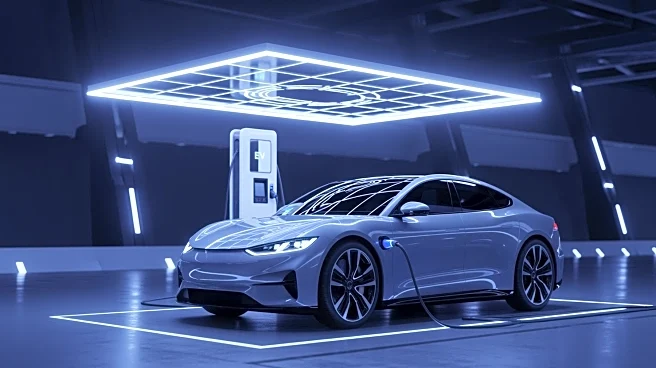What's Happening?
The self-charging electric vehicle (EV) market is projected to experience substantial growth by 2032, driven by technological advancements and increasing consumer demand. A recent report highlights the competitive landscape, segmentation, and geographical
expansion of the market, with key players such as Tesla, Toyota, BMW, and Nissan leading the charge. The report provides a comprehensive analysis of market size, trends, drivers, and constraints, as well as future growth prospects. It also examines the manufacturing capabilities, production volumes, and technological innovations within the self-charging EV sector. The market is segmented by application, including residential, commercial, fleet, public transportation, government, ride-sharing, utility companies, and charging infrastructure providers.
Why It's Important?
The expansion of the self-charging EV market is significant for the automotive industry and environmental sustainability. As demand for cleaner transportation solutions grows, the development of self-charging EVs could reduce reliance on traditional charging infrastructure, making electric vehicles more accessible and convenient for consumers. This shift could lead to a decrease in carbon emissions and promote the adoption of renewable energy sources. Additionally, the market's growth presents opportunities for investment and innovation, potentially leading to job creation and economic benefits. Companies that successfully navigate this evolving landscape may gain a competitive edge and drive industry standards.
What's Next?
As the self-charging EV market continues to evolve, stakeholders will likely focus on overcoming technological challenges and enhancing product offerings. Companies may invest in research and development to improve battery efficiency and charging capabilities. Regulatory bodies could also play a role in shaping the market by implementing policies that support sustainable transportation solutions. Collaboration between automakers, technology providers, and government entities may be essential to address infrastructure needs and ensure the successful integration of self-charging EVs into the broader transportation ecosystem.















